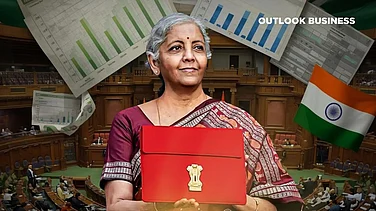InsurTech sectors claims that it plays a significant role in transforming the health insurance industry and can improve the experience for consumers, enhance risk assessment and pricing, streamline operations, and enable innovative product development. In the age of everything ‘digital’, modern consumers expect seamless, transparent, and responsive service, which InsurTech says it is well-equipped to provide. Ahead of the announcement of Budget 2024, consumers and industry players expect the government to introduce measures that will accelerate the adoption of InsurTech, making health insurance more consumer-centric.
A Way To Make ‘Insurance Accessible for All by 2047’
“India's insurance sector has made remarkable strides, adapting to changing economic landscapes and evolving consumer needs,” says Indraneel Chatterjee, Co-founder of RenewBuy.
By embracing cutting-edge technologies like Artificial Intelligence (AI), and Machine Learning (ML), the industry has redefined insurance, making it more accessible and tailored to diverse consumers from different age and income groups. “However, to make ‘Insurance accessible for All by 2047’, the government and private players need to work in collaboration and make insurance available to every Indian citizen,” Chatterjee notes.
Improving Customer Experience with Advanced Technologies
To facilitate the growth of InsurTech in the life insurance sector, the experts say the government can consider budget-friendly measures such as:
- Establishing regulatory sandboxes
- Providing tax incentives for insurers to invest in or partner with InsurTech firms
- Allocating funds and grants for research and development
- Investing in secure data infrastructure
Measures To Strengthen Consumer’s Data Privacy, and Security
With increased digitalisation, data privacy and security have become a growing concern for many consumers. Dark patterns are used to missell insurance policies to customers. Experts highlight that the government in Budget 2024 should propose stringent regulations to protect consumer data and provide incentives for companies to adopt best practices in cybersecurity.
“Supporting talent development initiatives to build a skilled workforce in areas like data science, AI, and cyber security - all of which can create a conducive environment for the integration of InsurTech solutions, ultimately benefiting the life insurance industry and its customers,” says Chetan Vasudeva, Senior Vice President of Business Development at Elephant.in.
Tax Incentives for InsurTech Penetration To Tier 2,3 Cities
Tax incentives for technology adoption are another key demand. “To enhance efficiency and bring in better customer experience, we propose tax breaks for investments in technology aimed at improving insurance distribution. This includes deductions for expenses on cloud computing, data analytics tools, and AI-powered underwriting platforms,” says Pankaj Nawani, CEO of CarePal Secure.
Distribution in insurance is one of the key challenges in the country, and the new-age InsurTech companies have been increasingly contributing towards solving the distribution gaps.
“While most of these companies are taking insurance to the Tier 2,3 cities and beyond, by harnessing technology and eliminating branch reliance; substantial input costs are incurred in developing the tech stack, improving cyber-security and upskilling insurance advisors and employees. To support these efforts, the government should consider tax rebates, and lowering GST rates for the InsurTech distributors,” Chatterjee comments.
With a focus on innovation, accessibility, and affordability, Budget 2024 could create an ecosystem that supports growth and development wherein the insurtech sector establishes an improved customer experience for all.






























